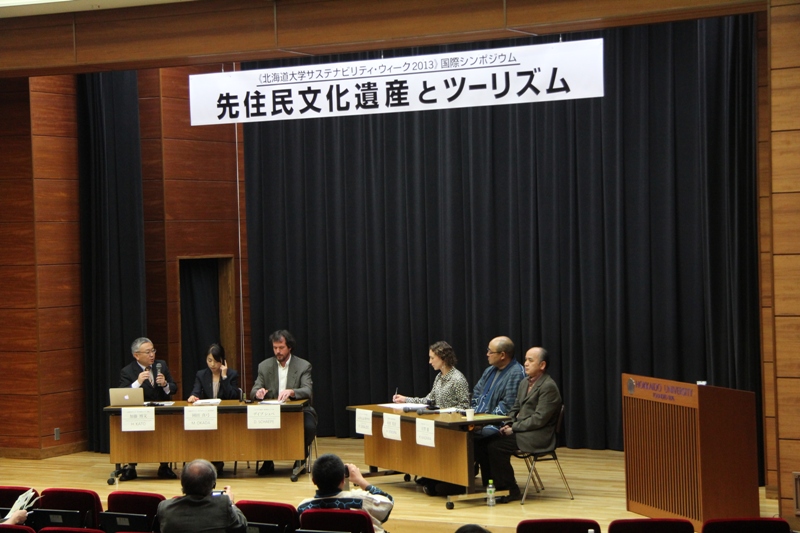 Hokkaido University is just wrapping up Sustainability Weeks (サステナビリティ・ウィーク), which sponsors events and lectures over the course of several months dedicated to the theme of “sustainability” in society and in the academy. The official description from the website reads:
Hokkaido University is just wrapping up Sustainability Weeks (サステナビリティ・ウィーク), which sponsors events and lectures over the course of several months dedicated to the theme of “sustainability” in society and in the academy. The official description from the website reads:
Sustainability Weeks (SW) is a campaign hosted by Hokkaido University with the aim of promoting research and education to help create a sustainable society. The assembly of more than 6,000 researchers, educators, students, and citizens from home and abroad during the two weeks of SW to share and discuss the latest scientific knowledge in the form of symposium, workshop and various exhibitions will enable us to identify the next steps toward a better future.
Even though the term is most often heard in environmental or economic discourse, the events during Sustainability Week are separated (and cross-listed) between four categories: Learning for the Future, Quality of Life, Harmony with Nature, and then a yearly theme (this year’s theme is “Education for Sustainable Development”). These headings seem to invite a kind of feel-good gathering around the campfire, but I actually think that there is something really important to discussing sustainability within the University and Humanities, especially in light of practices that cannot keep pace with changes in the nature of the university and academic publishing
 But the quest for a sustainability is also of concern to indigenous communities across the globe. Last year, I attended Hokkaido University’s Sustainability Week symposium titled “Indigenous Heritage and Tourism: Succession and Creation of Living Heritage” (先住民文化遺産とツーリズム: 生きている遺産の継承と創造). Across three days at Hokkaido University and The Historical Museum of the Saru River in the town of Biratori, scholars, artists, and activists from Hokkaido and abroad dialogued about how to preserve indigenous heritage, and the the transference of knowledge about Ainu language and art to a younger generation moving into the future.
But the quest for a sustainability is also of concern to indigenous communities across the globe. Last year, I attended Hokkaido University’s Sustainability Week symposium titled “Indigenous Heritage and Tourism: Succession and Creation of Living Heritage” (先住民文化遺産とツーリズム: 生きている遺産の継承と創造). Across three days at Hokkaido University and The Historical Museum of the Saru River in the town of Biratori, scholars, artists, and activists from Hokkaido and abroad dialogued about how to preserve indigenous heritage, and the the transference of knowledge about Ainu language and art to a younger generation moving into the future.
This year’s theme, “Indigenous Heritage and Tourism: Constructing Cultural Landscape and Indigenous Heritage Issues” (先住民文化遺産とツーリズム ―文化的景観と先住民遺産をめぐる諸問題―), continues this conversation by examining the various uses of landscape in indigenous communities as both managed resource and cultural inheritance. The activities on December 20th center around the theme of “Cultural Landscapes Created by Rock & Water”, while December 21st is dedicated to “Cultural Landscapes Created by Sea and Lake.” If last year’s event was any indication, this year will a vibrant dialogue, so check it out if you are in the Sapporo area.
Date/Time
December 20, 2014, 1 – 3pm (doors open at 12:30pm)
December 21, 2014, 10am – 4pm (doors open at 9:30am)
Location:
Hokkaido University Conference Hall [学術交流会館 小講堂] (Open to General Public)
Language:
Japanese/English (consecutive interpretation)
Sponsored By:
Hokkaido University Center for Ainu and Indigenous Studies
Center for Advanced Tourism Studies, Hokkaido University
WAC-Japan (Bid Committee for 8th World Archaeological Congress in Kyoto)